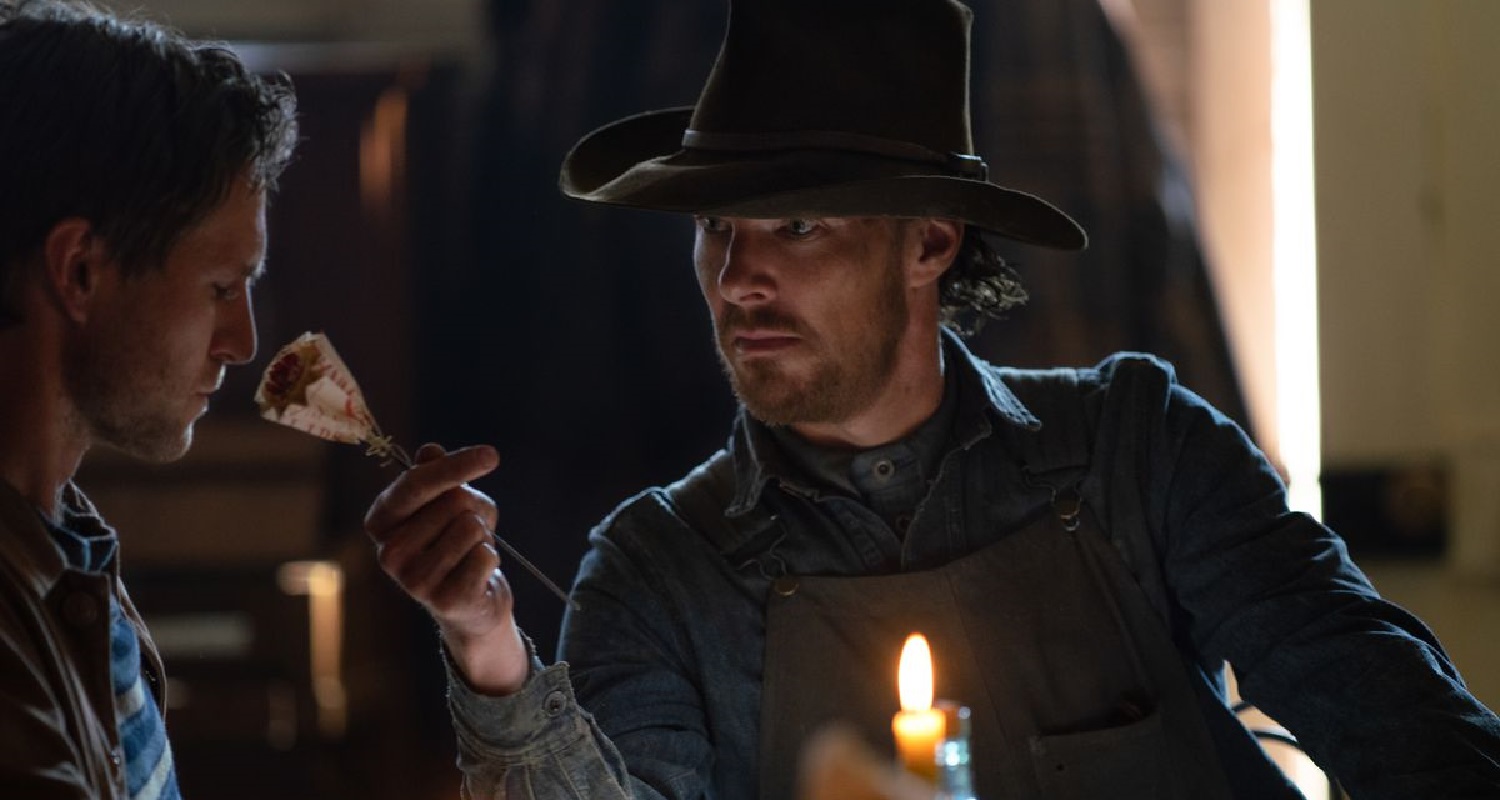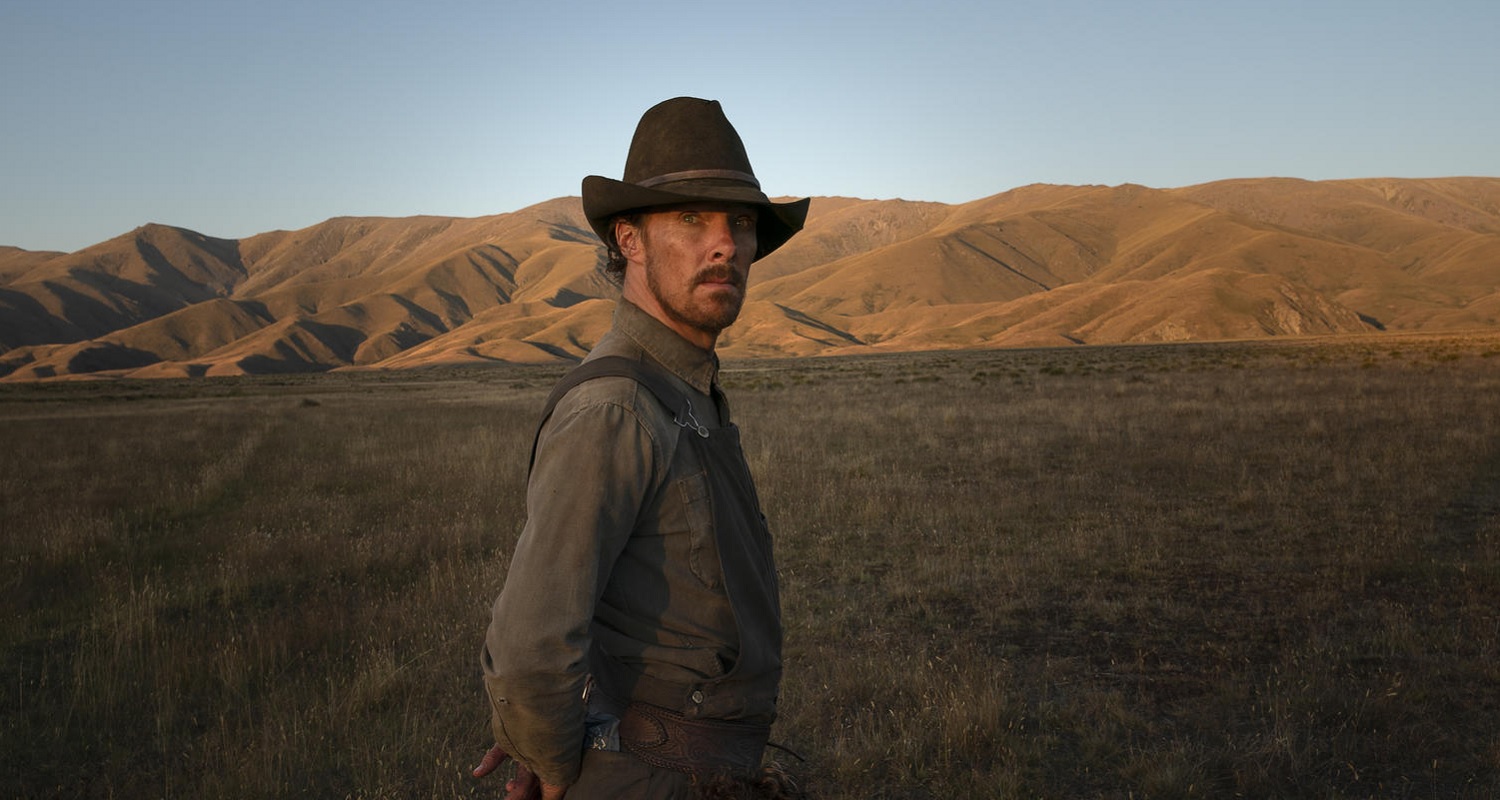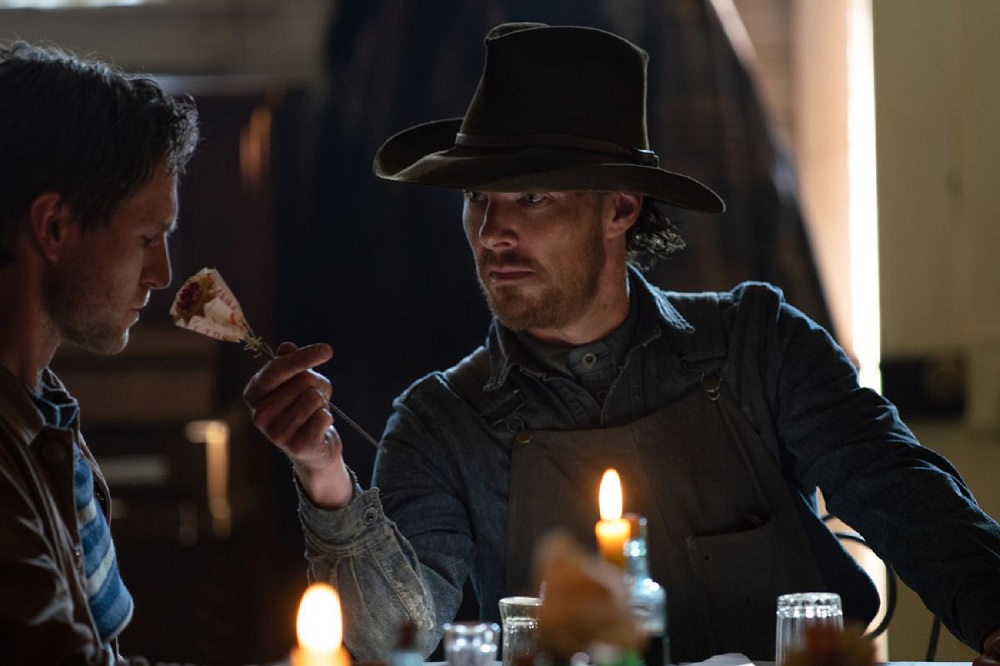The Power of the Dog review: ‘A beautifully homoerotic nightmare’
Benedict Cumberbatch is astonishing in Netflix's gritty Western The Power of the Dog, which has picked up 12 Oscar nominations.

Words: Jamie Tabberer; picture: Netflix
In a darkened barn in 1920s Montana, a chillingly beautiful young man named Peter slowly inhales a cigarette. He delicately places it in the mouth of an older man – a cruel, stinking cowboy called Phil – but doesn’t let it go. Phil, looking Peter dead in the eye, takes a long, hard drag.
We’re getting flustered just writing about it. Gay sex is typically neutered in mainstream movies (remember Call Me By Your Name‘s camera, meandering out the window?) and is indeed barely-implied in The Power of the Dog, a gritty new Western streaming now on Netflix.
And yet the scene in question, between Kodi Smit-McPhee and Benedict Cumberbatch is intensely, if not often unbearably, homoerotic.

We don’t exactly mean sexy, either: Cumberbatch’s animal-beater Phil is a closet case of such boiling rage, it’s impossible to desire him. But sexual? The complicated and crackling on-screen chemistry between the actors is undeniable.
Elsewhere, there are painting-like scenes of naked men frolicking in rivers and one of sublime passion when Phil remembers a late lover in a secret thicket.
Basically, it’s a lot. Perhaps because a female director is in the driving seat – The Piano‘s Jane Campion, again capturing the gasp-inducing beauty of New Zealand to fantastical effect – the gay energy is never gratuitous or trashy.
In fact, the entire film is measured and balanced to near-perfection, and is bound to sweep awards ceremonies.
Cumberbatch, hanging up the strict period tailoring we’re used to, goes gutsily against type as a man-child engulfed by insecurities about that old chestnut: toxic masculinity. He’s an explosive, scary revelation, and the unlikeliness of his performance is only enhanced by the endearing Jesse Plemons as his mild-mannered on-screen brother George.
The plot sees George take on as his wife a grieving innkeeper named Rose. Step forward a rattled, doll-like Kirsten Dunst, channelling the same despondent energy as in the astonishing 2011 drama Melancholia.
She moves into the creaking, M. C. Escher-like family mansion as Phil – shown to have dysfunctionally shared a room with his brother well into adulthood – seethes with jealousy and cruelty. When Rose’s son Peter comes to stay, Phil comes truly undone.

Look up gaslighting in the dictionary and there ought to be a reference to this film. Phil declares cold war against all around him; especially Rose. His seemingly innocuous methods of terrorising her – whistling quietly, playing a banjo at warp speed – are more malignant than any horror movie. The two have a fascinating dynamic, and my only real criticism of the film (I looked away for some of the horrific imagery, but understand what it represents) is how little they verbally interact.
Kirsten is devastating as the wilting Rose. Is this really the same energised girl from countless beloved bubblegum teen comedies of old? She manages a merry-go-round of scenes, from overworked mother to loved-up newlywed, and quickly from helpless victim to desperate alcoholic, with effortless finesse. Smit-McPhee is clearly destined for big things as he thoughtfully turns a wallflower role into something exponentially stranger.
There’s plenty more to love. The huge, dusty ranch – rendered tiny by the mountains that perfectly frame it – is a victory in staging, and begs you to explore its nooks and crannies. There are gorgeous details aplenty (be sure to study Kirsten’s gorgeous costumes), plus there’s an ambiguous ending that will leave you pondering. You’ll need to watch it at least twice.
For this viewer and lover of LGBTQ cinema, it’s also a relief to watch something that doesn’t depict queer life, whether in its triumphs or tragedies, as cartoony. It’s also refreshing to find something that doesn’t seek to pass comment on the issues of today. At least not directly.
Cumberbatch’s performance is so unignorable that the straight actors/gay roles debate will no doubt rear its head again come awards season, and is already leaving this reviewer conflicted. Nobody could have replicated this exact brand of searing despair, which belongs on film. But is it somehow less offensive when a straight actor plays ‘straight-acting’ gay characters, whatever that means, than, well, an alternative? And if so, why?
Rating: 5/5
The Power of the Dog is out on Netflix now.
